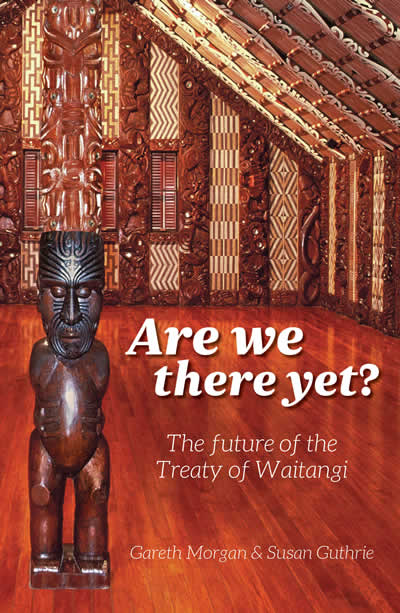 Three questions: ‘Where have we got to with the Treaty of Waitangi?’; “Is where we have got to a good place?’ and ‘Where do we go from here?’ This book is a record of what we discovered as we tried to answer these – what we thought at the time were simple – questions. But nothing is simple when you start asking questions about the Treaty of Waitangi! Two years later we have emerged battered and bruised but with something we want to say. ‘Fellas, we might be about to crash the truck and you’re not even looking!”
Three questions: ‘Where have we got to with the Treaty of Waitangi?’; “Is where we have got to a good place?’ and ‘Where do we go from here?’ This book is a record of what we discovered as we tried to answer these – what we thought at the time were simple – questions. But nothing is simple when you start asking questions about the Treaty of Waitangi! Two years later we have emerged battered and bruised but with something we want to say. ‘Fellas, we might be about to crash the truck and you’re not even looking!”
What we’ve ended up with, and what we present here, is a personal assessment of the way New Zealand is governed and, in particular, of the changes that have been happening to peoples’ political rights over the past few years. Changes that have been introduced in response to pressure to honour the Treaty of Waitangi. That means this book is ultimately about New Zealand’s constitution but don’t be put off by that word. This stuff matters and we could do a whole lot better than we are.
Get the bookAbout the project
The right place of the Treaty of Waitangi in New Zealand’s constitution and governance has intrigued me for years.
Anyone who has lived during the lead up to the Hikoi of 1975 and the subsequent stirring into action of successive governments that have tried to awaken all New Zealanders to the challenges implied, cannot help but be curious as to what it all means.
Well I’ve learnt, as Susan Guthrie and I have worked our way through this study of the post-1975 reconciliation and claims settlement process, that the Treaty has become and will remain, central to all our lives.
That’s a good thing and it’s incumbent upon us all to ensure that we participate in its evolution, and do not leave it to the academics and lawyers embroiled in the Treaty “industry” alone, to set limits on our individual democratic rights as we search for the best way to ensure Maori can “walk tall” in their own land.
A sustainable outcome to fulfilment of rangatiratanga demands all New Zealanders get involved in this. After all what this is, is the writing of New Zealand’s constitution.
Frequently asked questions
How can Maori achieve their aspirations without unique political rights?
How do we interpret the articles of the Treaty?
How do we sort the ethnic bias in disadvantage?
In what situations is positive discrimination okay? Who decides?
Is devolution a good idea and how can we make it work?
What does rangatiratanga really mean?
What does the evidence say about the quality of devolved services?
What would it take to properly respect Maori property rights?
Which is the ‘correct’ version of the Treaty?
Who is making money from the Treaty?
Who owns the Treaty – can only Maori discuss it?
Why do you think an economist can teach us anything about the Treaty?
Why is the Treaty not a legal document?
Why should Pakeha care/ have an opinion on the Treaty?
